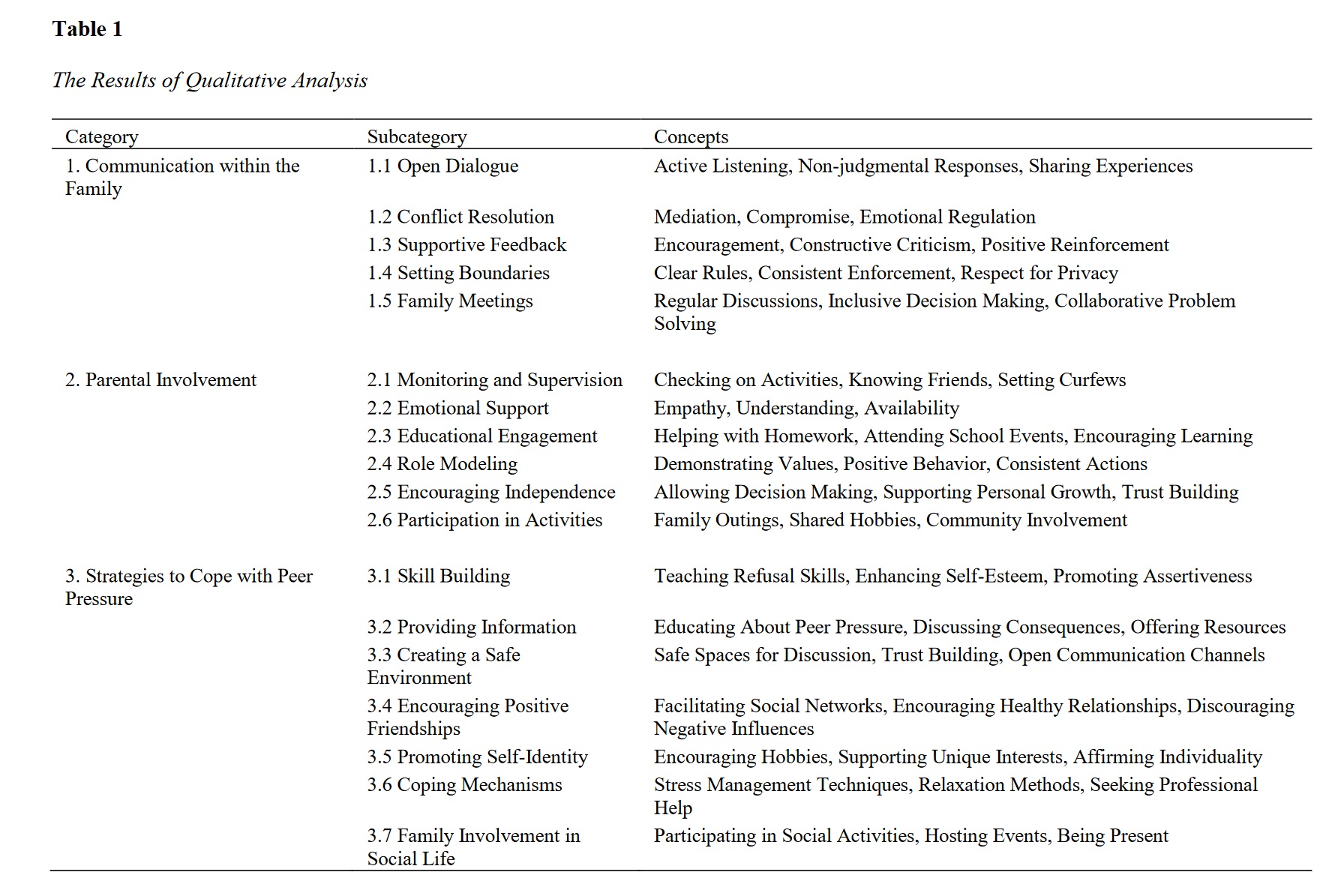The Role of Family in Managing Adolescent Peer Pressure and Social Challenges
Keywords:
Adolescents, Peer Pressure, Family Dynamics, Parental Involvement, Communication, Coping StrategiesAbstract
Objective: This study aims to explore the role of family in managing adolescent peer pressure and social challenges. It seeks to understand how communication, parental involvement, and coping strategies employed by families influence adolescents' ability to navigate these challenges.
Method: A qualitative research design was utilized, involving semi-structured interviews with 24 participants, including 12 adolescents and 12 parents. The participants were selected through purposive sampling. Interviews were transcribed and analyzed using NVivo software, following a thematic approach. Data collection continued until theoretical saturation was achieved, ensuring a comprehensive understanding of the phenomena under study.
Results: The study identified three main themes: communication within the family, parental involvement, and strategies to cope with peer pressure. Key subthemes included open dialogue, conflict resolution, supportive feedback, monitoring, emotional support, skill-building, and promoting positive friendships. These findings align with existing literature, emphasizing the importance of family dynamics in shaping adolescents' responses to peer pressure and social challenges.
Conclusion: The study underscores the critical role of family in managing adolescent peer pressure. Effective communication, active parental involvement, and proactive coping strategies are essential components that help adolescents navigate social challenges. Future research should incorporate larger samples and longitudinal designs to further explore these dynamics. Practitioners can use these insights to develop targeted interventions that promote healthy family interactions and support adolescents in managing peer pressure.
Downloads

Downloads
Additional Files
Published
Issue
Section
License
Copyright (c) 2024 Solmaz Bulut, Parichehr Mehdiabadi (Author); Haixin Qiu (Corresponding Author)

This work is licensed under a Creative Commons Attribution-NonCommercial 4.0 International License.






